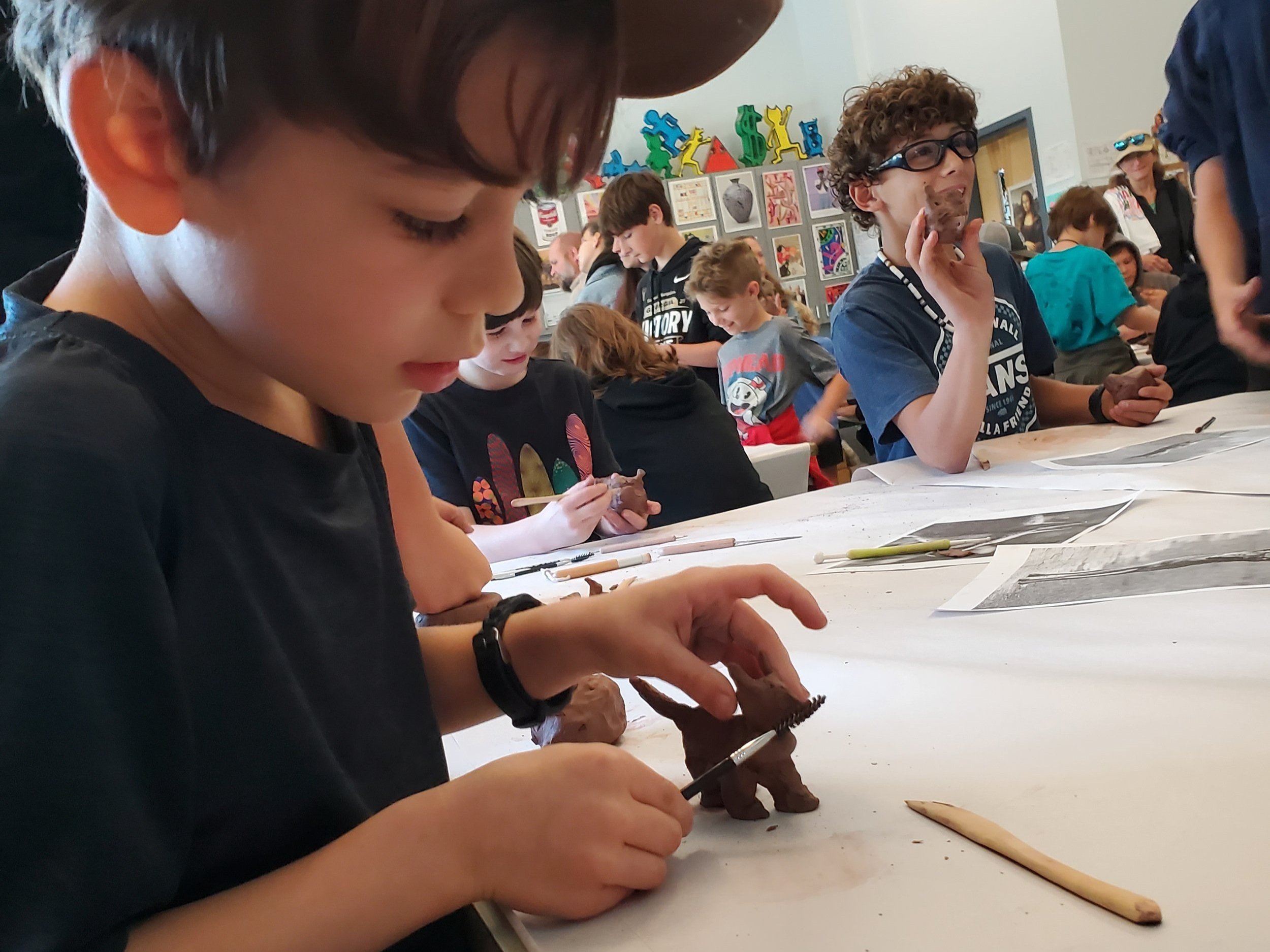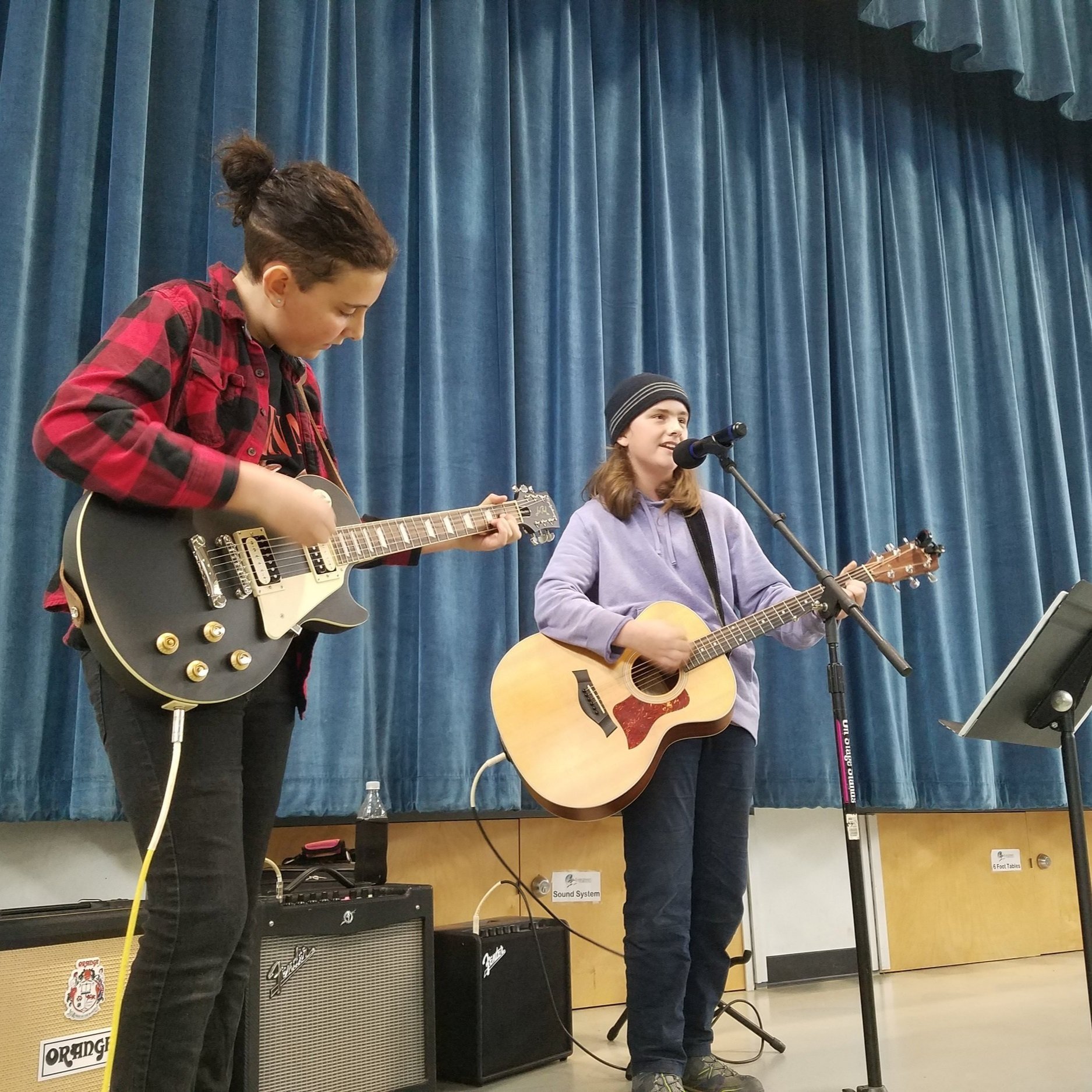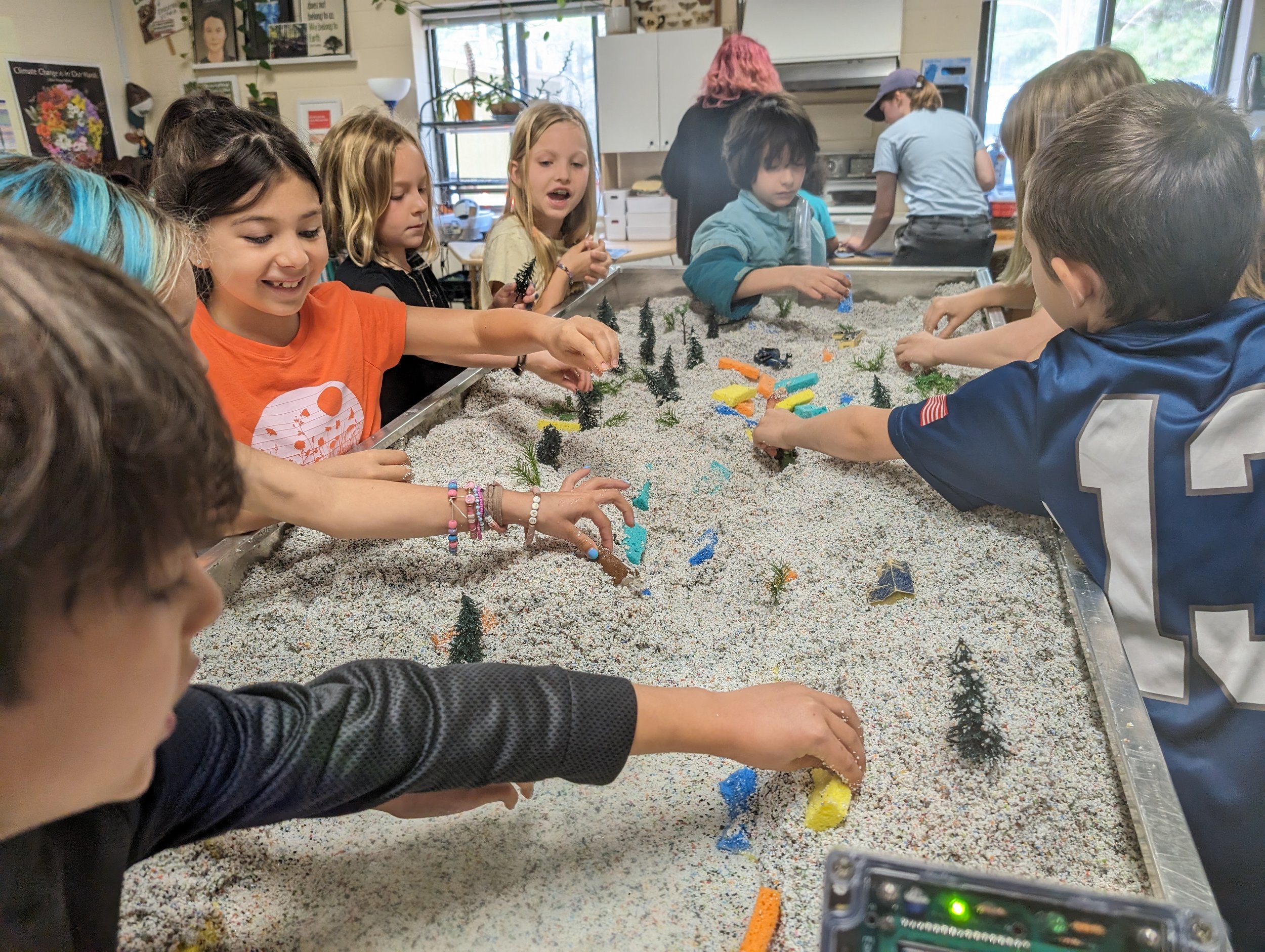Enrichments
Adventure PE
Adventure physical education offers athletics in traditional and non-traditional settings.
This enrichment is required for grades K-8. Students learn and practice sports, fitness routines, group games, initiatives, personal record-setting, and relate exercise to integrated health.
Additionally, students travel off-campus to participate in alternative sports, including skiing, snowboarding, backpacking, rock climbing, white water rafting, canoeing, kayaking, mountain biking, and hiking.
Each grade participates in an overnight adventure, ranging from kindergarten students sleeping in the school classroom to eighth graders embarking on a four-day Outward Bound course.
These adventures are integral to Evergreen’s curriculum and character education. Teachers and students embark on journeys that challenge their comfort zones.
Process video by Evergreen alum Jade Oakes.
We unveiled the climbing wall, five years in the making, at our Community Circle in August 2012. It has been a challenge and a joy for students for over a decade now. We are grateful to the parents and teachers whose advocacy and will were instrumental in this project’s completion!
Art
Our visual arts program reflects NC Essential Standards for visual arts classes in grades K-8. Students explore drawing, painting, mixed media, collage, sculpture, ceramics, weaving, and printmaking.
Students at all grade levels use the elements of art (line, shape, color, texture, form, space, value) and the principles of design (repetition, contrast, emphasis, balance, movement, proportion, harmony, unity) as they explore aesthetics, art history, art criticism, and art production. Throughout the school year, there are opportunities for visual arts integration with grade level classroom expeditions both in the classroom and during art class.
Environmental Education
We believe providing a strong connection with the natural world is essential to the development of the heart, mind, and body of our students.
Because of our commitment to environmental education across curricula, we provide opportunities for all students to cultivate and demonstrate an understanding of ecology and environmental stewardship.
Evergreen is one of two schools in North Carolina and one of 78 schools nationwide to receive the inaugural U.S. Department of Education Green Ribbon Schools award, which recognizes the highest performing green schools in the nation.
From the building of awareness and appreciation of the natural world, to service, and civil action, our ‘EE’ program empowers our students to be environmental changemakers.
Library
Library Laura reads an excerpt from When We Are Kind by Monique Gray Smith.
Our Library program values reading for learning and enjoyment, and we cultivate confident, enthusiastic readers. Course content serves as a companion and resource to classroom learning expeditions.
In the library, students develop written and spoken language skills, the ability to listen and observe effectively, fine-tune their critical thinking and decision making. Our curriculum further supports our students’ eagerness to explore, to listen, to express themselves both verbally and through the written word, to empathize, and to meet challenges with confidence and courage.
Music
Our music curriculum is designed and based on state and national standards for music education and approached through the lens of Evergreen's EL Education model. Students explore music from many cultures, including America’s musical roots.
At the elementary level, students experience music through singing, listening, moving, and playing instruments in a non-competitive, inclusive atmosphere. Middle school music classes take a project-based approach to study music history and a variety of genres.
Students in grades K-4 have music class once per week, while 5-8 students have one class per week during one trimester.
Personal Development
Health Education
As part of our holistic approach to child growth and development, we provide an intentional program of study to develop the understanding, skills, attitudes, and habits to support a lifetime of wellness and thoughtful decision-making.
Areas of Development in Health Education
Self-awareness: Individual learning styles/profiles, personal challenges, goal setting and reflection, positive body image
Healthy living: hygiene, nutrition, fitness, relaxation, personal safety, and knowledge of human body systems and maintenance
Communication/Relationships: building and maintaining healthy relationships, clear and honest communication, conflict resolution, mediation, assertiveness
Sexuality (developmentally appropriate content): anatomy & physiology, puberty, reproduction and reproductive health, gender identity, sexual orientation, sexuality and society, the law, and media, sexual abuse, and harassment
Many of the topics covered involve choices and developing values that may not match up with those of all of our diverse community members. For this reason, familial involvement is essential. Families are able to decide for their student(s) to opt out of certain activities or discussions at any time.
Finally, we are a community that embraces diversity and acknowledges differences in sexual preference, as well as gender identity and roles. Our goal is to teach students to honor multiple perspectives in an open dialogue.
Teen Scene
Our 5-8 Counselor conducts prevention-based enrichment classes on social and emotional life skills and healthy decision-making through a trimester-long personal development class called Tween/Teen Scene. Topics include communication and conflict resolution skills, substance abuse education, stress management, and respect for diversity.
Technology
In second grade, students are exposed to computer science concepts involving computer coding. In fourth grade, students start formal keyboard instruction.
Technology complements and enhances classroom instruction and learning expeditions. Students learn about their digital footprints and work online collaboratively to develop and refine research skills. Class projects involve multimedia content creation, including podcasts, book trailers, stop-motion animation, movies, and more.
Help Evergreen Enrich our Curriculum with your One-time, Monthly, or Quarterly Donation!
Interested in becoming a corporate sponsor or speaking to someone about volunteering your expertise in the classroom setting?

























